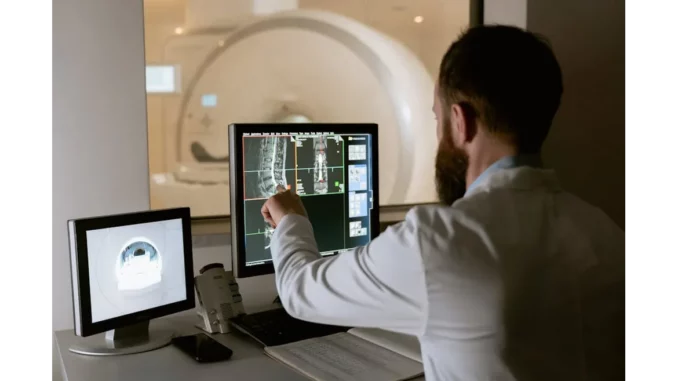
When I had the opportunity to sit down with Dr Priya Mehta, a distinguished gynaecologist and researcher based in Mumbai, our conversation swiftly transitioned from casual topics such as the weather to the profound impact of technology on healthcare. Dr Mehta, whose genuine warmth and insightful gaze signal her dedication to her field, is leading the charge in transforming the diagnosis of Polycystic Ovary Syndrome (PCOS) in India. This is particularly significant in a nation where the prevalence of PCOS is alarmingly high.
With a tone that balanced urgency with a sense of optimism, Dr Mehta explained, “PCOS is a major concern here. It affects approximately 9% to 22% of women of reproductive age in India. That translates to potentially one in five women, given our vast population. The statistics are daunting, yet many remain undiagnosed due to the disorder’s intricate nature.” As she detailed, PCOS arises from a complex interplay of genetic, hormonal, metabolic, and environmental factors. “The increase in processed foods, pollution, and early onset of puberty exacerbates the situation,” she noted, stressing how these environmental changes are disrupting hormonal pathways and causing more young women to develop PCOS earlier.
In this context, Convolutional Neural Networks (CNNs), a sophisticated form of artificial intelligence, have emerged as pivotal tools. “The advent of CNNs in medical imaging is revolutionary,” Dr Mehta expressed with palpable enthusiasm. “These models excel at identifying patterns in images, which is critical for diagnosing PCOS from ultrasound images.” I was eager to understand how these models function, and Dr Mehta graciously elaborated. She explained that CNNs, such as CystNet and PCONet, are crafted to scrutinise ultrasound imagery of the ovaries, pinpointing specific indicators of PCOS that may elude manual examination. “CystNet employs image segmentation to detect cyst patterns, achieving an accuracy rate of about 84.81%,” she explained. “PCONet advances this by analysing morphological details like cyst size and shape, achieving an impressive 98.12% accuracy.”
These statistics represent more than mere numbers; they signify tangible improvements in diagnostic accuracy. “For clinicians, a tool offering such precision is invaluable,” Dr Mehta continued. “It enables us to provide better, more personalised care to our patients.” The integration of artificial intelligence in clinical settings extends beyond diagnostics. Dr Mehta highlighted that, when used alongside Electronic Health Records, these AI models offer a comprehensive overview of a patient’s health. “We can track a patient’s progress over time, monitor hormone levels, and make informed, data-driven decisions regarding their treatment plans.”
Despite these promising advancements, Dr Mehta acknowledged the hurdles that remain. “These models are often trained on specific regional data, which can limit their applicability across diverse populations,” she explained. “Additionally, the computational resources required can pose challenges in settings with limited means.” To address these issues, researchers are expanding datasets to incorporate more diverse populations. “Clinical trials across various institutions are underway,” she informed me, expressing optimism about enhancing the robustness and adaptability of these AI models.
As our discussion drew to a close, Dr Mehta’s enthusiasm for the future was infectious. She concluded with an optimistic vision: “The potential of AI to transform women’s health is immense. Imagine integrating CNN models with wearable devices to enable real-time monitoring of PCOS symptoms. We’re looking at a future where early diagnosis and personalised treatment plans become the standard, rather than the exception.”
Reflecting on this insightful exchange, it becomes evident that the intersection of AI and healthcare transcends mere technology—it is fundamentally about improving human lives. In India, where PCOS poses a significant health challenge, these technological advancements hold the promise of enhancing health outcomes and granting women greater autonomy over their reproductive health. As I departed Dr Mehta’s office, I was filled with optimism about the future. The world of medicine stands on the brink of a new era, where artificial intelligence and human expertise collaborate to confront complex health challenges, such as PCOS. The possibilities for healthcare are indeed boundless, presenting an exciting horizon filled with potential.


Be the first to comment